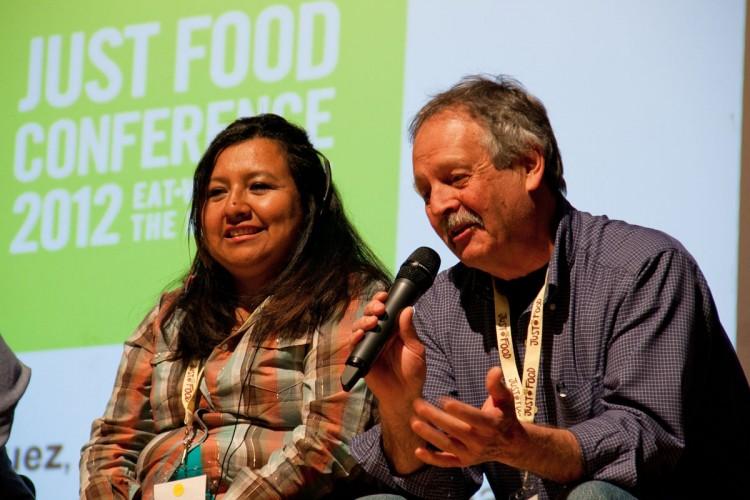NEW YORK—A school of thought among urban gardeners holds that African-Americans do not get involved in growing crops partly due to a lingering awareness of their enslaved ancestors cotton-picking days.
“I was born in South America, so the slavery understanding doesn’t affect me the same way,” said Yonnette Fleming, farmer and educator at Hattie Carthan Community Garden in Bedford-Stuyvesant, Brooklyn.
Fleming was among those who discussed their experiences on a panel as part of Just Food’s annual conference on Saturday at the Food & Finance High School on West 50th Street in Manhattan.
Fleming said she looks at urban farming as “food liberation” and is opposed to “food colonization.” She references the frequent occurrence of diabetes among Native Americans whose diet radically changed after colonization. Diabetes is also widespread among African-American populations who often don’t have good access to fresh produce, or the money to buy it.
Farmers markets are increasingly accepting Electronic Benefit Transfer (EBT) food stamps, noted Ana Rodriguez Angel, who began farming in Orange County when she moved to New York from Mexico. This is the biggest change she has seen in the industry in the last five years, and it relates to another notable change: “More communities, regardless of race, are eating many more vegetables,” said Angel.







